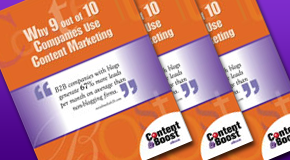Trust and loyalty are two things that money simply can’t buy. Especially considering the ways in which consumers use the Internet to conduct their own research before reaching out to a salesperson. Trust and loyalty are two characteristics of good business that are more difficult than ever to build in vendor-consumer relationships than in previous decades. Due to the ease of accessibility to consumer reviews—both good and bad—any potential client can avoid dealing with a bad sales pitch before an attempt is even made.
Contrary to what one might believe about the state of affairs between vendors and buyers, however, trust and loyalty are reportedly on the rise between them, according to new research from LinkedIn. In fact, 84 percent of buyers felt positively about their vendor relationships.
So, how are vendors improving trust and loyalty in an age of unparalleled transparency? The key is content marketing. While trust and loyalty can’t be bought, vendors’ marketing budgets can certainly be leveraged to improve these critical areas. With a focus on creating fresh, impactful content across popular digital channels in order to engage potential buyers, vendors are now able to position themselves more positively in the eyes of consumers.
One significant benefit to developing a trustworthy content strategy is to position your organization as not only an industry leader for goods or services, but as a thought leader as well. Buyers look to a vendor that appears to understand not only the current state of their industry, but where they are headed as well. A website populated with fresh and thoughtful content shares your organization’s voice, inspires thought and educates readers—all of which lead to building long-term, trust-based relationships.
Another way that vendors are benefitting from content marketing is through email. This channel, in particular, helps to target and nurture leads with personalized content. And according to a 2015 eMarketer survey of marketing executives, email drives the same amount of revenue as other digital marketing channels combined. This is due to the fact that marketers can deliver content directly to their targeted audiences with a custom tailored message, thereby, fostering trust-based relationships amongst buyers and vendors.
Even restricted to the space of 140 characters, like on Twitter for example, content marketing can prove to be a powerful tool. By producing content designed specifically for social media accounts, potential customers can see your organization’s personality as they conduct their online research. If you fail to speak up on social media, buyers will be forced to gain their perception from what others say about you. By keeping active on social media, you can engage more often with potential buyers, which will, in turn, make your brand more appealing. If you don’t take the time to make your brand a highly-visible thought leader, then you’ll risk becoming lost in this saturated marketplace.
Clearly, leveraging content as part of your marketing strategy can help buyers feel more connected to your brand, thereby increasing trust and the creation of more loyal and long-lasting relationships. However, creating this type of effective content is no easy feat. If you need a hand getting the ball rolling, leverage a third-party content strategy vendor to help you put your best foot forward.















